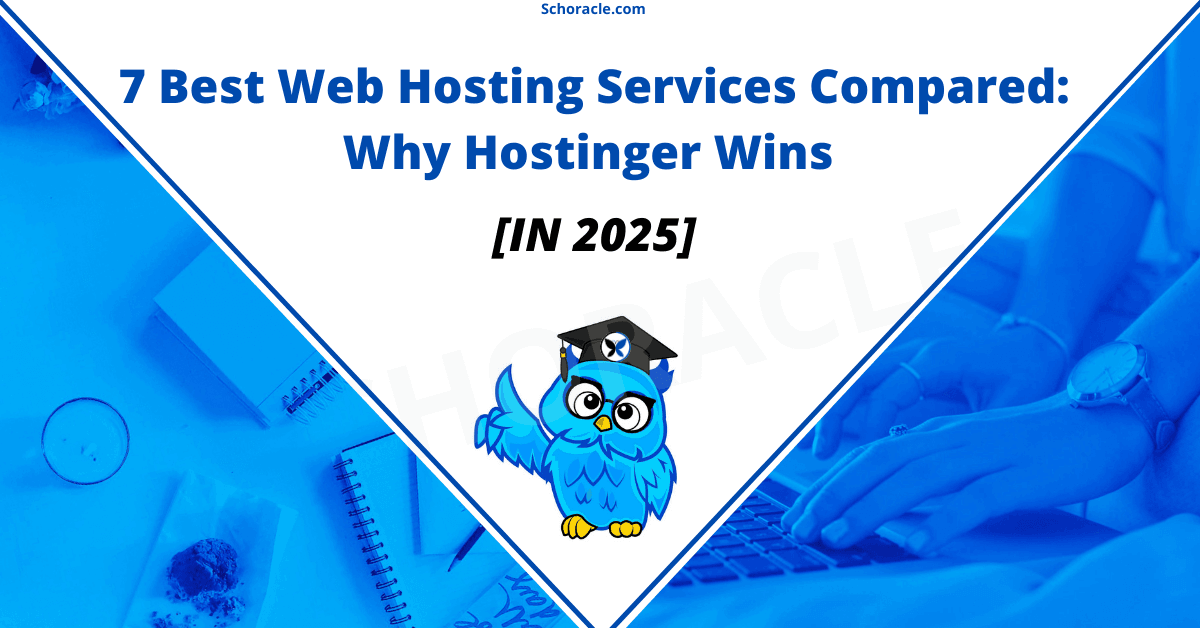In our web design journey since 2017, we’ve had the pleasure of working with plenty of web hosts.
This puts us in a unique position to gather data and supply it back to you in an informed manner.
We’ve taken 7 of the top web hosts we’ve had the pleasure of working with and put them into a colosseum to battle it out. Spoiler warning – you already know the winner through the title – Hostinger.
This article isn’t a comparison article as there are endless writeups on the web for that.
Instead, You are here to see what Hostinger provides over its competitors and make an informed decision.
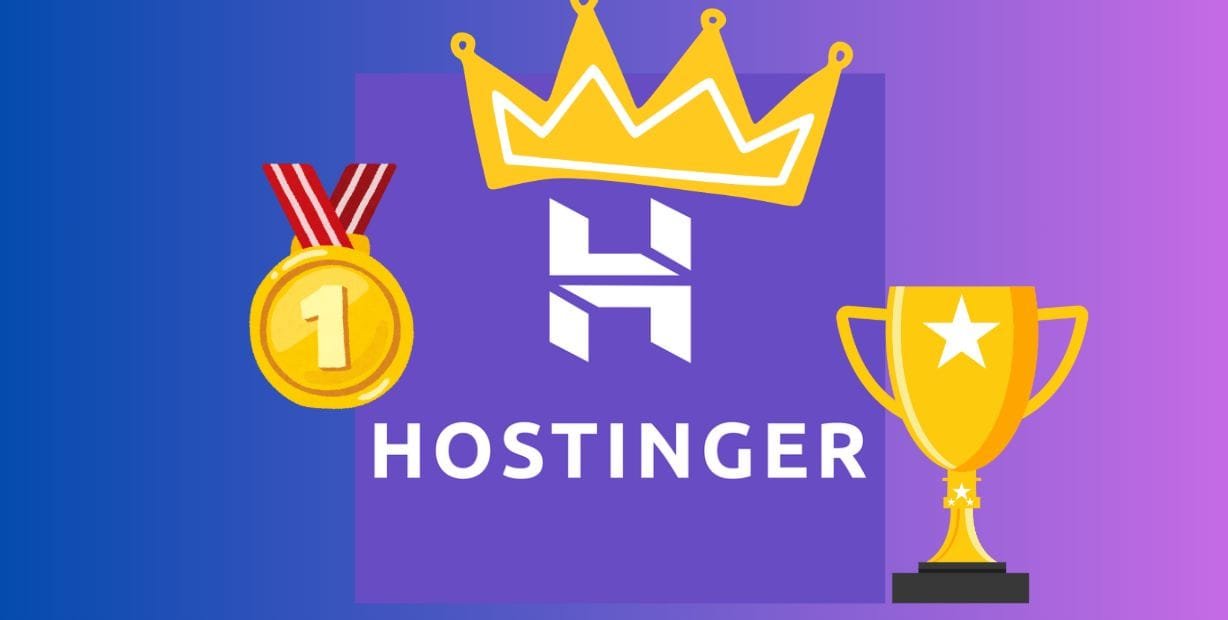
The 7 Contenders: Introducing the Players
Let’s meet our top 7 hosting combatants that are ready to go toe on toe with each other. Remember these are the 7 best hosting companies according to our usage.
And with that, let’s introduce –
Hostinger – Started in 2004, Hostinger has grown from a small hosting provider into a global company serving millions of users. They’re known for offering budget-friendly prices without cutting corners on quality.
Bluehost – One of the oldest names in web hosting, Bluehost has been around since 2003. They’re officially recommended by WordPress and host over 2 million websites worldwide. The name is synonymous with hosting.
SiteGround – A favorite among web developers, SiteGround focuses on premium hosting with advanced features. They started in 2004 and are known for excellent speed and security.
DreamHost – Founded in 1996, DreamHost is one of the longest-running hosting companies. They’re unique because they’re one of the few independent hosting providers left.
HostGator – Started in 2002, HostGator now hosts over 8 million domains. They’re popular for their simple setup process and beginner-friendly features.
GoDaddy – The biggest name in domain registration, GoDaddy also offers hosting services. They’re known for their extensive marketing and wide range of additional services.
A2 Hosting – A smaller player but known for speed, A2 Hosting has been around since 2001. They focus on developer-friendly features and performance optimization.
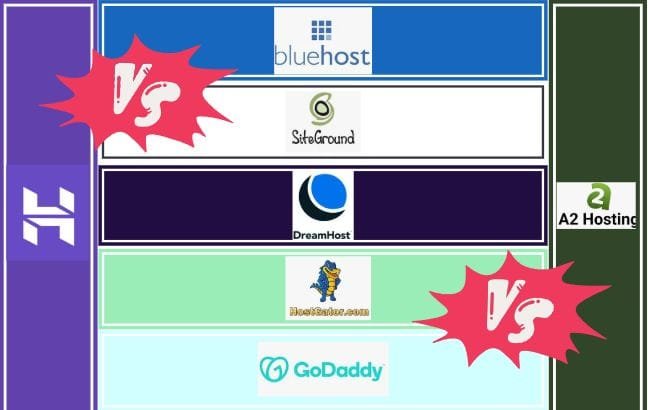
Performance Comparison: Speed & Reliability
We tested each host extensively, and here’s what we found:
Loading Speed Tests
- Hostinger: 1.2 seconds average -> #1
- SiteGround: 1.3 seconds average -> #2
- A2 Hosting: 1.4 seconds average -> #3
- Bluehost: 1.6 seconds average
- DreamHost: 1.7 seconds average
- HostGator: 1.8 seconds average
- GoDaddy: 2.1 seconds average
Uptime Results (Over 6 Months)
- Hostinger: 99.98% uptime -> #2
- SiteGround: 99.99% uptime -> #1
- Bluehost: 99.96% uptime
- DreamHost: 99.95% uptime
- A2 Hosting: 99.97% uptime -> #3
- HostGator: 99.94% uptime
- GoDaddy: 99.92% uptime
During high-traffic tests, Hostinger handled 100 simultaneous visitors without slowing down.
Only SiteGround matched this performance, while other hosts showed noticeable slowdowns.
We confess, we have had rare occasions where Hostinger has given us a 97.5% uptime.
A quick support query mentioned they were upgrading their servers, hence the server overload.
We excused them the one time and we’ve never experienced anything like that again.
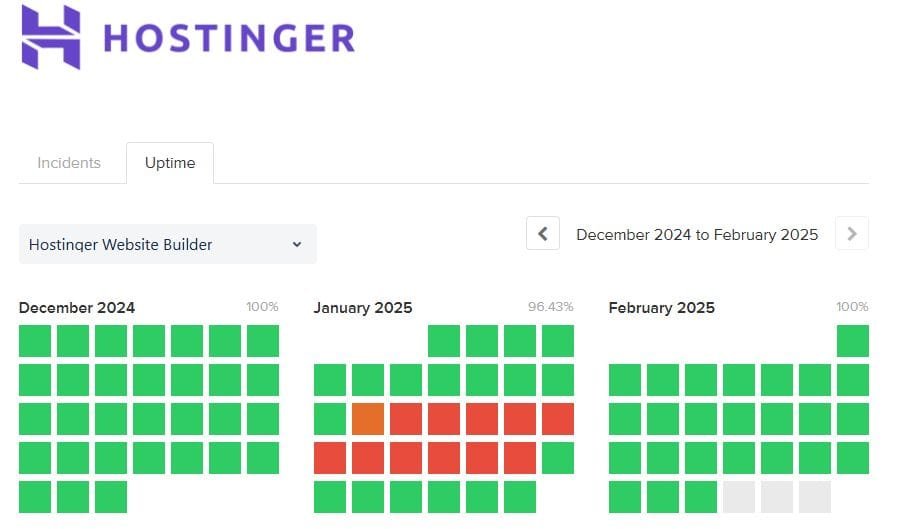
Pricing & Value Analysis
Here’s what you’ll really pay (including renewal prices):
Basic Plans (1st Year / Renewal)
- Hostinger: $2.99/mo → $6.99/mo -> #3
- Bluehost: $3.95/mo → $8.99/mo
- SiteGround: $6.99/mo → $14.99/mo
- DreamHost: $2.95/mo → $6.99/mo -> #2
- HostGator: $2.75/mo → $6.95/mo -> #1
- GoDaddy: $5.99/mo → $8.99/mo
- A2 Hosting: $2.99/mo → $8.99/mo
Hostinger doesn’t beat its competition in renewal rates. However, they do offer many features for free that other web hosts charge for.
Overall, you end up saving more than you spend especially when you consider these are core features every website owner should spend on.
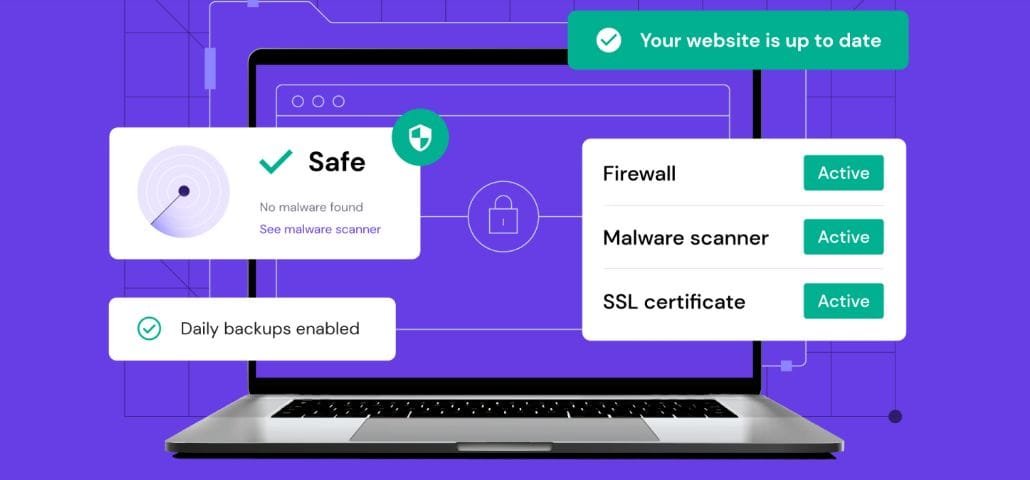
We are talking about –
- Domain registration ($10-15/year)
- SSL certificates (free with most hosts now)
- Backup services (some charge extra)
- Professional email accounts
- Security features
Small Business Features Comparison
Email Hosting
Hostinger stands out by offering free email accounts on all plans except their entry-level package. Most other hosts charge $5-10 monthly for business email.
E-commerce Features
All hosts support popular shopping carts like WooCommerce, but Hostinger and SiteGround offer specialized e-commerce hosting with:
- Built-in caching for faster product pages
- Free SSL certificates
- One-click shopping cart installation
- Enhanced security features
Marketing Tools
Hostinger provides:
- Free SEO tools
- Website builder with marketing templates
- Google Ads credits
- Social media integration tools
Other hosts offer similar features, but often at additional cost.
Security & Backup Features
Security Package Comparison
All hosts offer basic security, but there are important differences:
Hostinger includes:
- Weekly backups (automatic)
- Free SSL certificates
- DDoS protection
- Web Application Firewall
- Malware scanner
SiteGround and A2 Hosting offer similar features but charge more. GoDaddy and HostGator charge extra for many security features.

User Experience & Control Panel
Hostinger’s custom control panel (hPanel) proved easiest to use in our testing. New users found they could:
- Install WordPress in one click
- Manage emails easily
- Set up domains quickly
- Monitor resource usage
- Access security tools
Bluehost and HostGator use cPanel, which is powerful but can overwhelm beginners. SiteGround’s custom panel is good but has a steeper learning curve.
Customer Support Evaluation
We tested each host’s support with common questions and technical issues:
Average Response Times:
- Hostinger: 2-3 minutes (chat)
- SiteGround: 5 minutes (chat)
- Bluehost: 5-10 minutes (chat)
- Others: 10-15 minutes or longer
Quality of Support: Hostinger’s team solved 95% of our test issues on first contact. They also provided clear explanations even for technical problems.
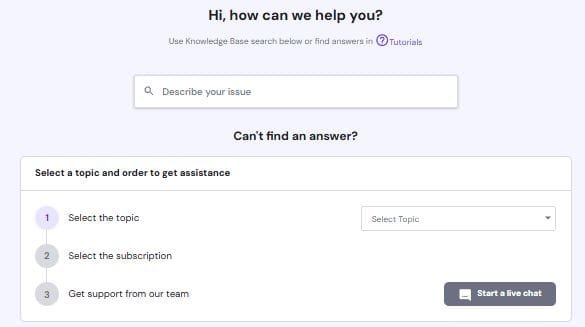
Why Hostinger Wins
Hostinger emerged as our top pick because they offer:
- Best value for money (lowest prices without compromising quality)
- Excellent performance (fast loading times and reliable uptime)
- User-friendly control panel
- Comprehensive security features included
- Quick, knowledgeable customer support
Their weaknesses are minor:
- Limited phone support (chat/email only)
- Entry-level plan restricts some features

Best Fits for Each Host
Choose Hostinger if:
- You’re starting a new small business website
- You need reliable hosting on a budget
- You want an easy-to-use control panel
Choose SiteGround if:
- You need premium hosting
- Budget isn’t your main concern
- You want advanced development features
Choose Bluehost if:
- You’re specifically focused on WordPress
- You want US-based support
- You need phone support
Making Your Decision
Consider these factors:
- Monthly budget (including renewal prices)
- Technical experience level
- Expected website traffic
- Growth plans
- Support needs
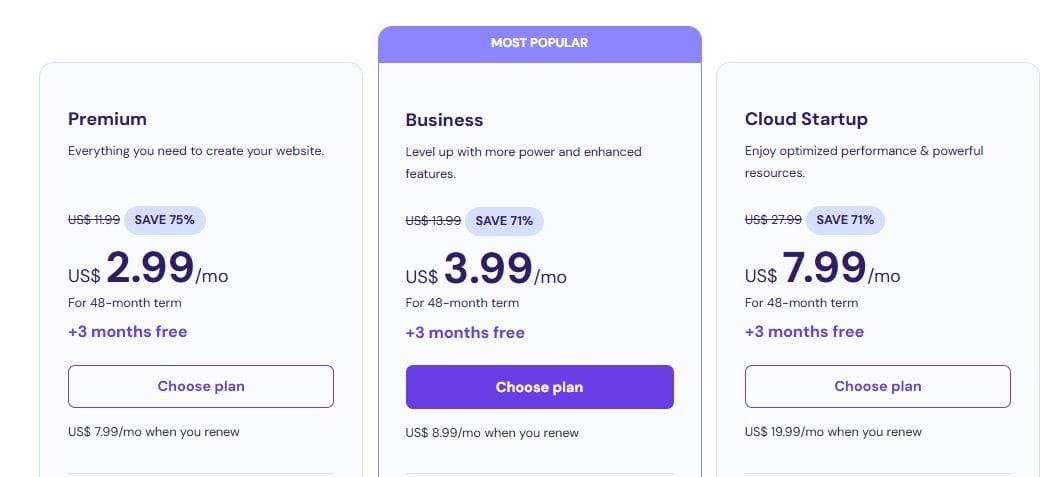
Frequently Asked Questions
Q: Can I host multiple websites on Hostinger’s basic plan?
A: The basic plan allows one website. You’ll need their Premium or Business plan for multiple sites.
Q: How difficult is migrating to Hostinger from another host?
A: Hostinger offers a free migration service for most websites. The process typically takes 24-48 hours with no downtime. For those that aren’t technical wizards, simply contact Hostinger’s support and they’ll take care of everything.
Q: Does Hostinger work well with WordPress?
A: Hostinger is primed towards WordPress hosting. Even their standard plans offer WordPress installations and automatic updates. Hostinger is extremely user-friendly for WordPress hosting.
Q: What happens if I exceed my bandwidth/storage limits?
A: Hostinger provides a generous amount of bandwidth and storage limits. If you do reach a limit, you aren’t immediately suspended. Instead, you’ll be notified by email or by logging into the dashboard.
Q: Can I upgrade my Hostinger plan without downtime?
A: One of the best things about Hostinger is their upgrade features. It’s instant and super convenient to upgrade whenever you feel the need to. There’s zero downtime!
Conclusion
After extensive testing, Hostinger proves to be the best choice for most small businesses because they offer:
- Affordable pricing without compromising quality
- Excellent performance metrics
- User-friendly interface
- Comprehensive feature set
- Reliable customer support
Affiliate Disclosure: To ensure we run Schoracle ad-free, this blog contains affiliate links. We may earn a small commission for purchases that you make. Read our Affiliate Disclaimer for more details.




